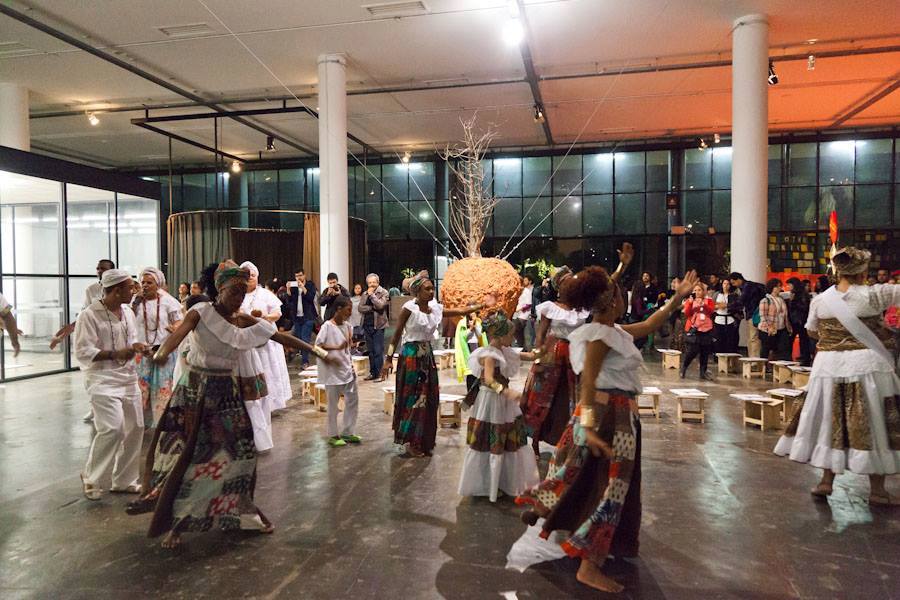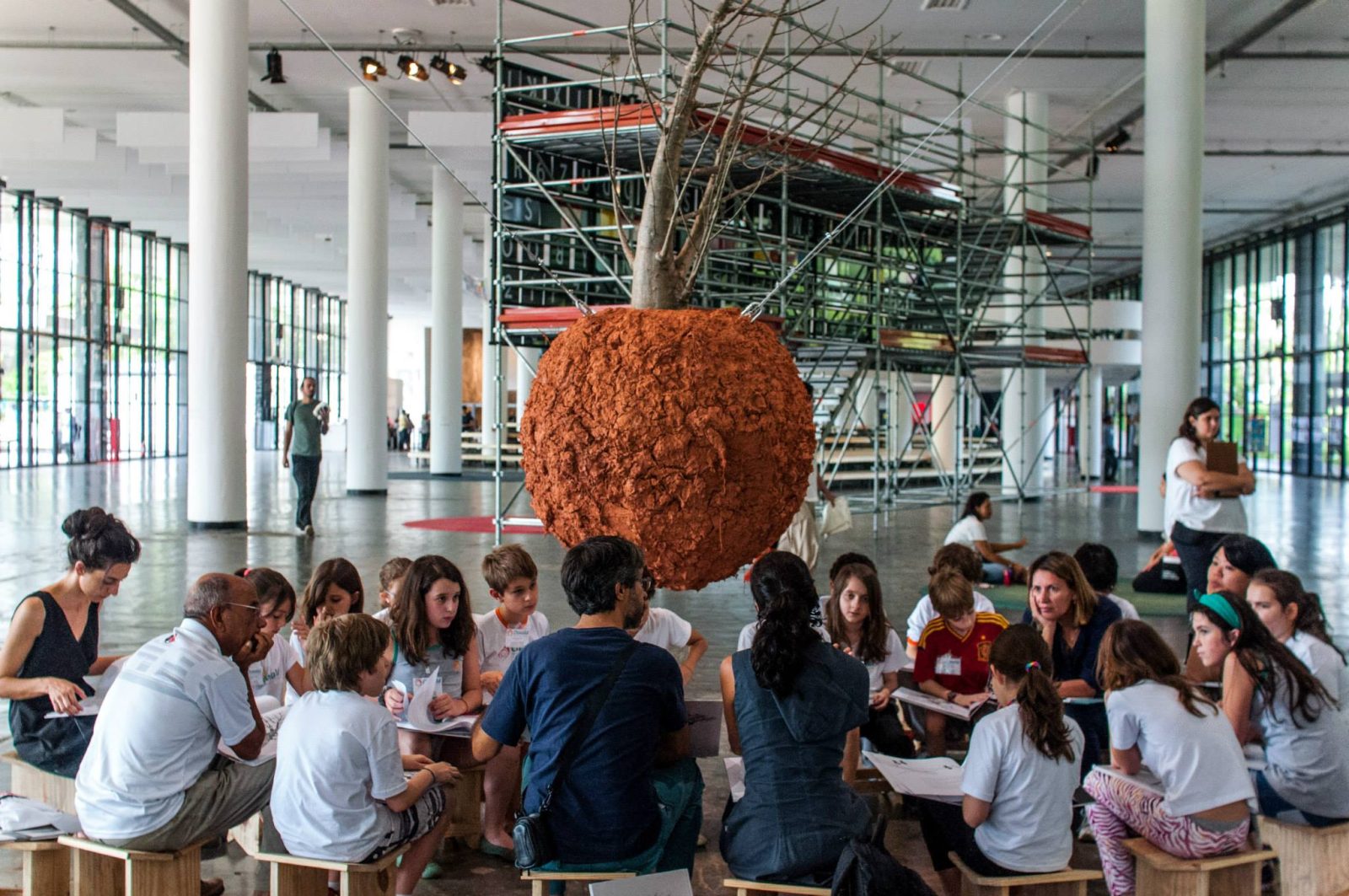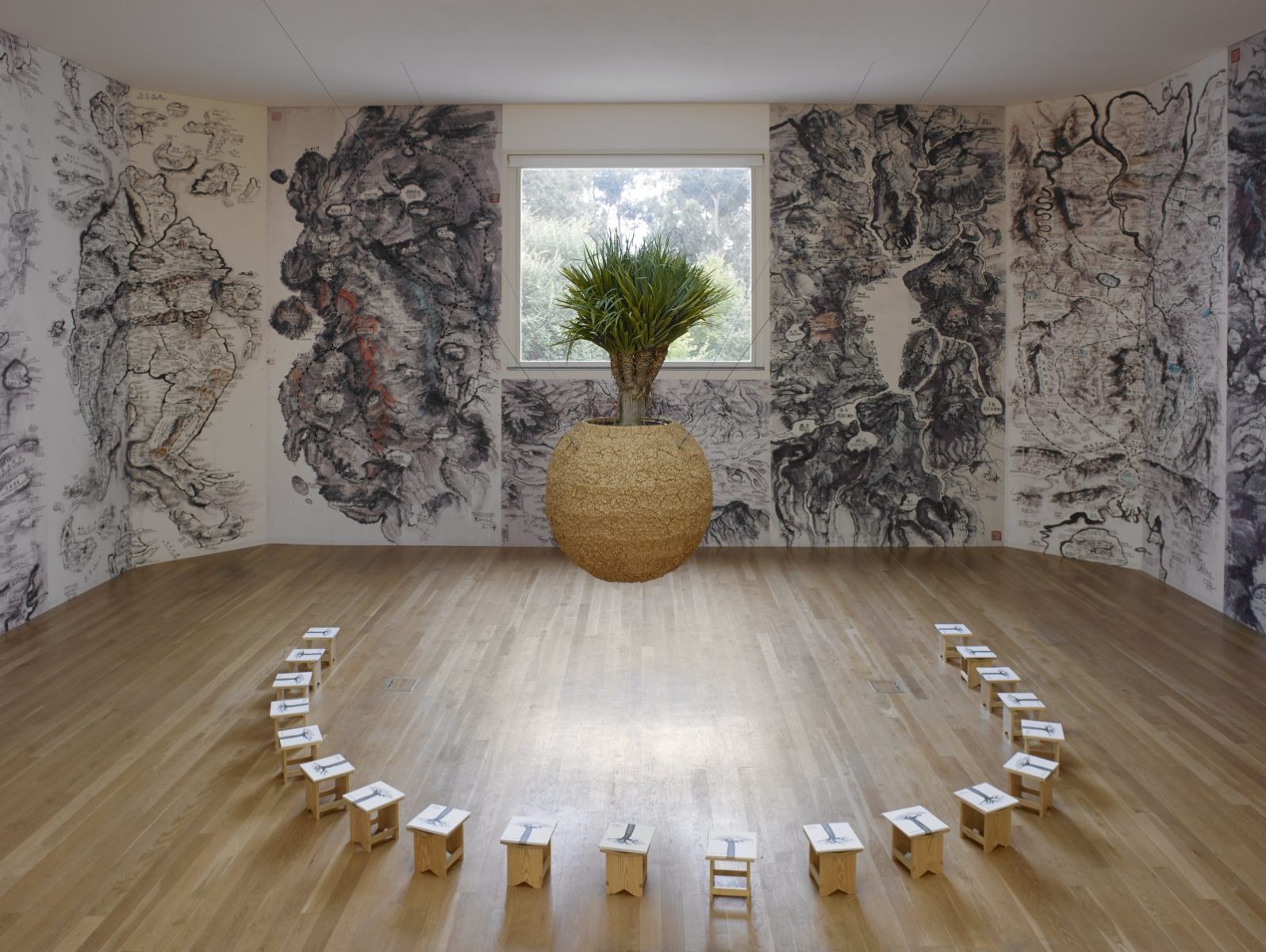The first Tree School was established in Bahia in the south west of Brazil in 2014, on the occasion of the São Paulo Biennial. In collaboration with the art collective Grupo Contrafilé based in São Paulo, and in dialogue with TC from the quilombos along with groups from the landless movement, we established a series of gatherings that revolved around analogies and differences between two exceptional spaces: Palestinian refugee camps and Brazilian quilombos.
Palestinian refugee camps were established in 1948 as a consequence of the Nakba (Arabic
for catastrophe) in order to provide shelter for the hundreds of thousands of Palestinians who were exiled and had to flee their homes located in what today is Israel. After over seventy
years, these camps have developed into semi-autonomous, dense urban environments that are no longer simply recipients of humanitarian aid, but rather active political spaces. Quilombos were communities established by enslaved Africans and Afro-descendants who fled their oppressors as an active form of resistance. Later, they became spaces of refuge for many other groups in Brazil. One of the largest quilombos in Brazil, Quilombo dos Palmares, dated back to 1630. It lasted almost a hundred years before it was destroyed. There were almost 30,000 people living there and it came to be known as the first democratic republic in the Americas. The quilombo is born out of the phenomenon of people becoming refugees and autonomously finding and choosing a place of their own. Nowadays in Brazil, there are at least three thousand communities remaining from the original quilombos. Most of them are located in rural areas. These are huge territories and there is the possibility of sustainable living because there is only collective land and no private property. A shared interest in these spaces and communities provides a key for reflecting and understanding the relationships between communities, territories and politics beyond the idea of nation-state.
Download the full publication here
The Baobab tree was chosen for the Tree School in Bahia. It became a gathering space for quilombos communities, schools and visitors to the São Paulo Biennial.
At the end of the exhibition, the Baobab tree was planted with a ceremony in the Tainã Cultural Center, part of the Mocambos Network.
In the winter of 2015, the Tree School traveled to Serralves Museum in Porto, hosting gatherings around art and participatory education with activists, educators, and cultural producers.




